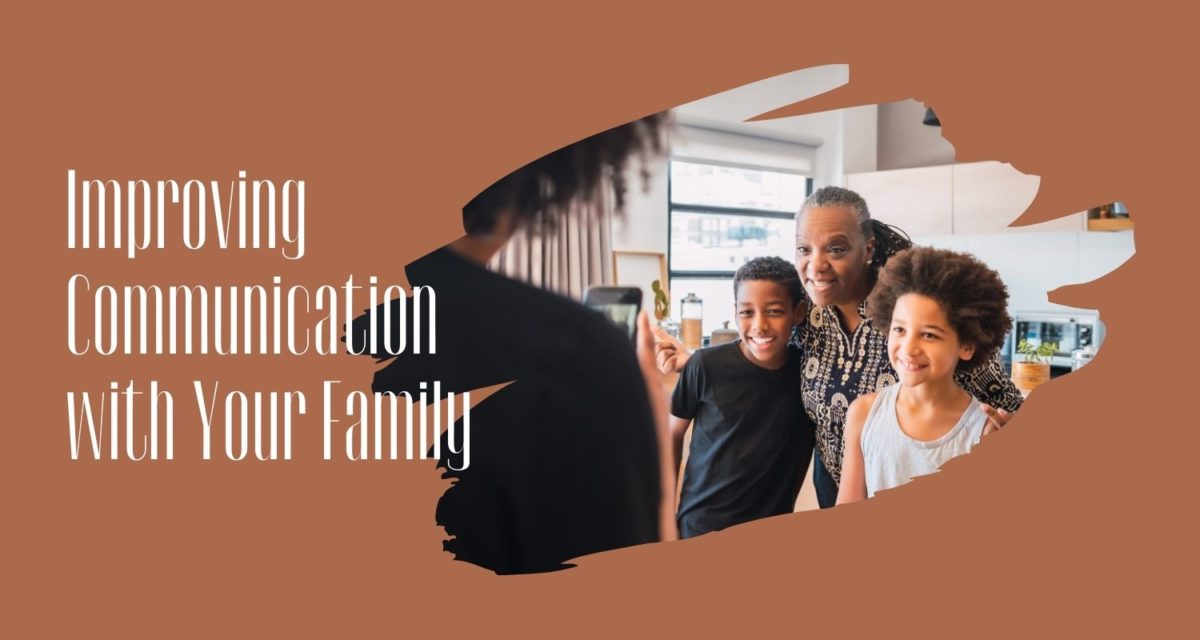- Are Cochlear Implants Worth It? - June 6, 2025
- Tips for Using Hearing Aids in Different Environments - May 27, 2025
- Rechargeable Hearing Aids vs. Battery-operated Hearing Aids - May 16, 2025
If you have a loved one with hearing loss, you understand the struggles that affect everyone in the family. Your family member who’s straining to hear gets frustrated or withdraws from conversations rather than face the embarrassment of mishearing or answering inappropriately. They may start feeling isolated or ignored as the grandkids or other family members interact more with the hearing members of the family.
Communication is the key to a healthy family, so if a family member is living with hearing loss, your entire family could suffer. To keep your family connected, the key is learning how to communicate with your loved one struggling to hear and ensure they feel included and loved.
Wait until you know they are listening.
You may have a lot to share and can’t wait to tell grandma all about your week, but before you start, make sure your loved one is paying attention to you and is ready to listen. If your loved one is making a cup of tea or has their back to you, they may not understand you, and they might not even realize you’re talking to them!
Get their attention by gently touching them or saying their name. Make sure background noises are at a minimum by turning down the radio or TV, so it will be easy for your loved one to hear you.
Lean in
Don’t be afraid to get a little closer if you want clear communication. Suppose you’re at a restaurant with your family or celebrating Thanksgiving together. In that case, it can get more than a little loud, and this makes it difficult for your loved one to understand you.
Make sure you’re face to face. If they’re sitting down, pull up a chair. Being on eye level will aid in communication and make it easier for your loved one to read your facial expressions or lips, as well as listen attentively to what you’re saying. Don’t yell at your dad from the kitchen to offer him a drink, but take the time to walk to where he is and talk to him up close.
Speak more clearly, not louder
You may think that the best way to help your loved one hear is to yell. However, this is the exact opposite of what you should be doing! Being loud doesn’t help your loved one hear. Rather than conveying the meaning of what you’re saying, it just sounds like you’re angry or upset, and that’s not a great way to communicate.
Instead of shouting, focus on being precise. Slow down a little bit, but don’t drag out the words. That will make it harder to understand even though you’re trying to be precise. To slow down, add a few pauses to your sentences to allow your loved one time to hear and process what you’re saying.
Rephrase, don’t repeat
If your loved one has trouble hearing you, don’t just keep repeating the exact words. The tones you’re using might be harder to understand, and saying the same thing over and over will make everyone upset.
Try paraphrasing. Pick different words, and restate the sentence in a different way to help your loved one understand you.
Hearing Consultants, Inc.
If a member of your family is struggling to hear, they’re not the only ones suffering. As communication breaks down, your entire family is affected, creating rifts in relationships and tension at family dinners.
Don’t let this continue unchecked. Do your best to convince your loved one to see us for a hearing assessment. We’ll evaluate their hearing and prescribe the perfect hearing device that will help get them back to communicating efficiently. We have quality devices that will fit their needs.
If your family communication is suffering, sit down with the whole family to talk about how to communicate effectively, regardless of who can hear clearly and who can’t. Share these tips and make sure everyone is on the same page, so your family can grow even closer than before. If a loved one has hearing loss that’s impacting you and your family, visit us today to help them get back to a better hearing.

